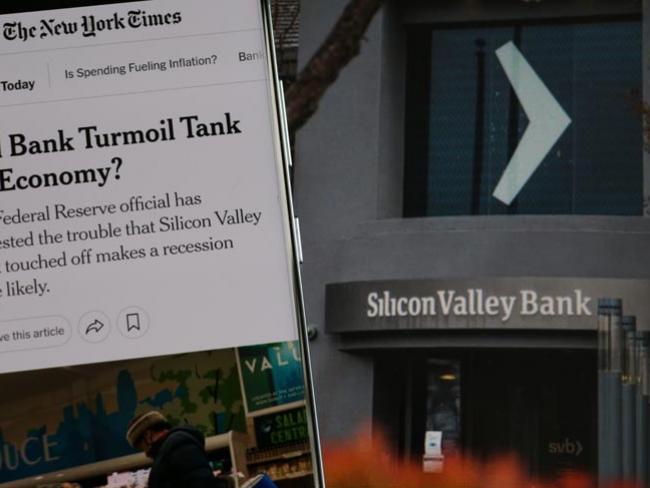
Image Peace-loving/shutterstock.com
An analysis of finance capital forensically analyses its failings – but then fails to see that there is no turning back to a golden age. Finance capital must go…
The destiny of civilization: finance capitalism, industrial capitalism, or socialism, by Michael Hudson, paperback, 327 pages, ISBN 978-3949546075, ISLET, 2022, £19.90.
This useful book from US economist Michael Hudson exposes the big lies that finance capital’s fans use to try to maintain its destructive and anti-democratic rule.
Hudson takes apart accepted truths economists and politicians use to justify their polices. It’s worth a read to find out in detail how finance capital works – not to recoil in horror, but to counter their arguments.
He explains that neoliberal economics, the current capitalist orthodoxy, stands classical economics on its head. And this is so far-reaching that it influences Chinese and Russian planning as well.
Hudson says that this view of economics “…regards financial charges as income earned productively by providing a ‘service’, which is categorized as output and hence part of Gross Domestic Product (GDP).” Financial profits and other forms of economic rent are counted as contributions to production, not as a burden.
The result: an illusion that the economy is growing, “But what actually is growing is the rentier sector, which does not create real economic value, but merely transfers income from debtors, renters and consumers to creditors, landlords and monopolists.”
This imbalance between production and finance is systemic and will not somehow correct itself if left alone. Finance capital is the problem and not the answer. The lack of investment in truly productive activity leads to economic stagnation and cyclical crises.
Bailouts
After causing the 2008 financial crash, “banks threatened with insolvency then asked for a bailout, holding the economy hostage if the government would not save them, along with their bondholders and large depositors.” Finance capital’s tame governments complied with this blackmail, as is now well known.
Hudson claims that there is a way forward for capitalism. He says that “…solving the problem of finance capitalism and the rentier legacy of feudalism would still leave the class conflict of industrial capitalism in place [and]…would not solve the problem of exploitation of labor by its employers.”
But he argues that creating a capitalist economy free of rentier burdens must happen before the conflict between capitalists and worker can be “reformed”. For all his detailed insight, Hudson can’t see that what he is describing is the evolution of finance capitalism, not a hangover from feudalism.
And worse, Hudson is in denial that the class conflict in each country between the capitalist class and the working class is unavoidable and cannot be set aside until the right time. Consequently he can’t accept the need is for revolutionary change to end the rule of capital.
Failure
Reform or mitigation of capitalism has failed at every stage. The book details how austerity policies go hand-in-hand with free trade and debt deflation policies; they are the policies of finance capitalism. These shrink productive powers, and spur higher unemployment and emigration.
Under such policies, “public spending is counted as overhead – as if infrastructure investment, education and health and social services do not play a productive economic role but merely absorb taxes…on the ground that they do not themselves make a profit, as if that means they do not contribute to the economy’s overall surplus.”
‘Reform of capitalism has failed at every stage…’
Finance capital defends free trade policies claiming that cheaper imports mean a better life for wage earners: “The trick is to try and make wage earners think of themselves as consumers, not workers, so that they will not ask what the benefit is in lower consumer prices if their job has been offshored.”
Finance capital transcends national boundaries. Multinational corporations undermine the sovereignty of nations and their ability to control movements of capital, labour, goods and services across borders.
These corporations want the opposite, for their own competitive advantage. The powers of national governments inevitably conflict with the corporations’ aims. Calling for open borders bolsters the multinationals and destroys democracy.
George Ball, the USA’s Under Secretary of State for Economic and Agricultural Affairs during the 1960s, summed this up, “to fulfil its full potential the multinational corporation must be able to operate with little regard for…restrictions imposed by individual national governments…”.
Hudson is not fooled by the “nice guys” either. He points out that the Obama Administration was responsible for ensuring that the Trans-Pacific Partnership was not just a trade agreement but became a tool “…to block public regulation of health, the environment, worker and consumer protection, and any other public interest that might interfere with corporate profit grabbing and rent extraction…”.
Hudson focuses largely on the USA and Britain. But he also mentions Russia and China. He says that today’s Russia needs to replace the “rentier kleptocracy” that developed after the Soviet Union fell…” They are in power! Replacing them would take a revolution.
His analysis of China is similar. He suggests that sustained economic growth depends on “…preventing its economy from being taken over by an emerging financial billionaire class.” But China already has an emerging financial billionaire class, which supports a new predatory landlord class.
The conflict between the USA and post-Soviet Russia and China is not ideological as Hudson claims, but is conflict between rival powers at different stages of capitalism.
These shortcomings and Hudson’s misplaced views that in Europe and North America “industrial capitalism seemed to be evolving into socialism” should not detract from the value of his book, which shows throughout how industrial capitalism evolved into finance capitalism.
